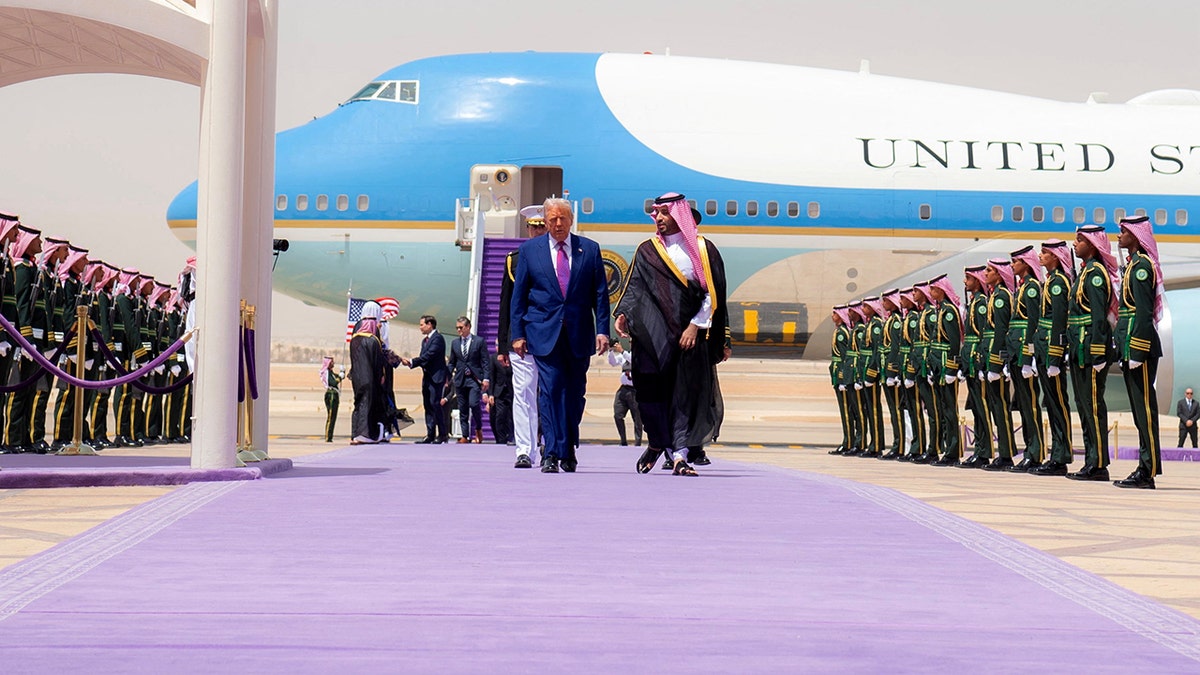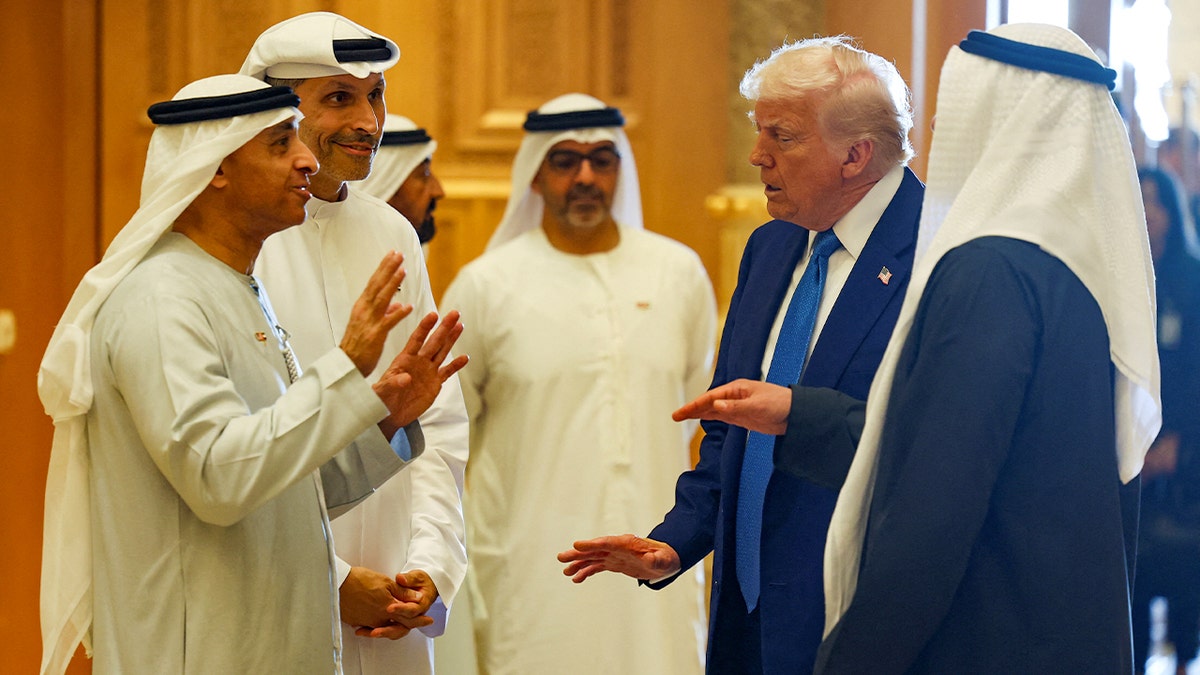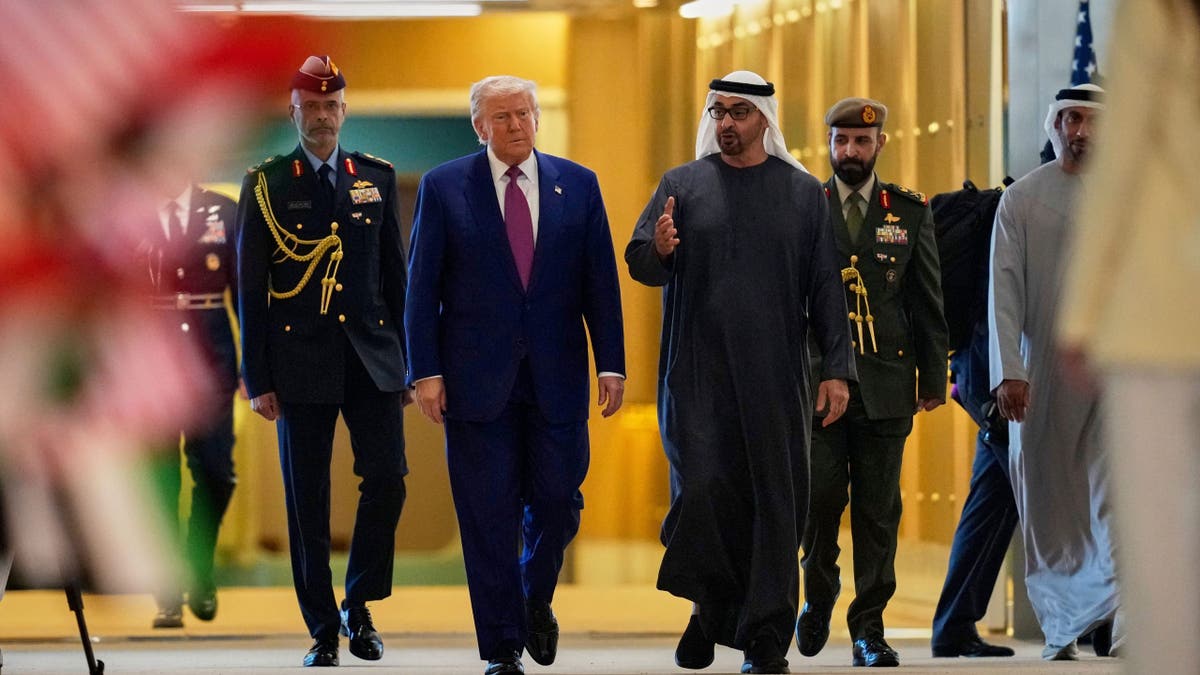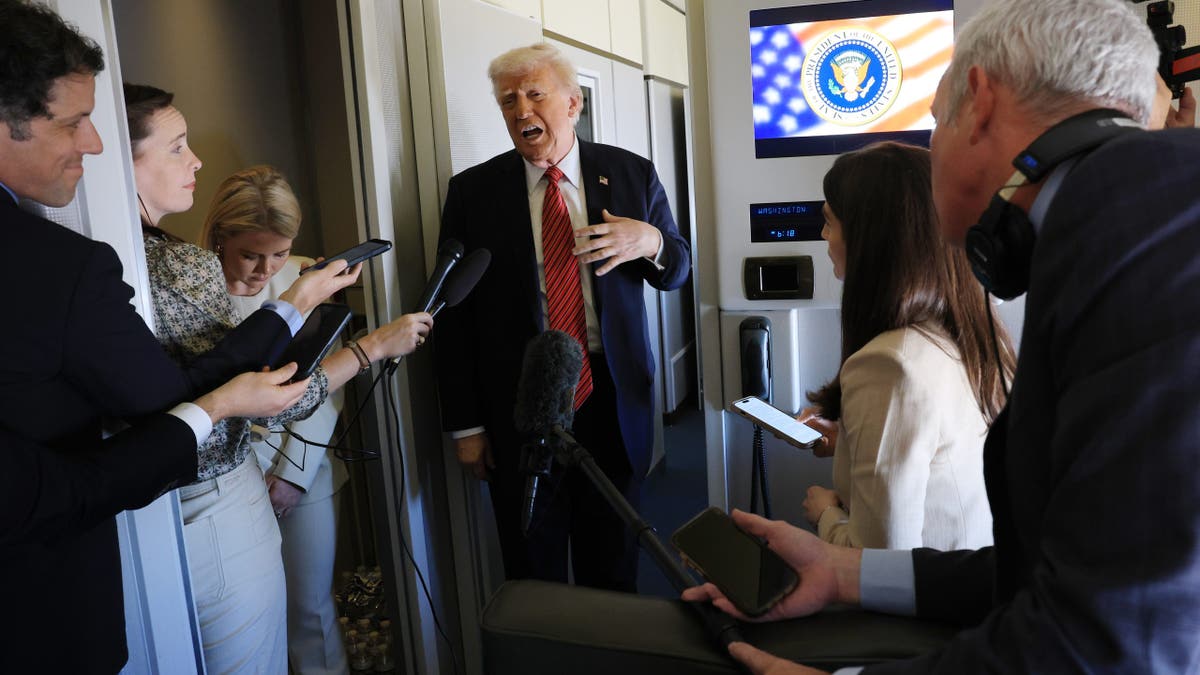President Donald Trump secured $2 trillion worth of deals with Saudi Arabia, Qatar and the UAE during his trip to the Middle East last week in what some have argued is a move to counter China’s influence in the region.
While China has increasingly bolstered its commercial ties with top Middle Eastern nations who have remained steadfast in their refusal to pick sides amid growing geopolitical tension between Washington and Beijing, Trump may have taken steps to give the U.S. an edge over its chief competitor.
But concern has mounted after Trump reversed a Biden-era policy – which banned the sale of AI-capable chips to the UAE and Saudi Arabia – that highly coveted U.S. technologies could potentially fall into the hands of Chinese companies, and in extension, the Chinese Communist Party (CCP).

U.S. President Donald Trump walks with Saudi Crown Prince Mohammed Bin Salman during a welcoming ceremony in Riyadh, Saudi Arabia, May 13, 2025. (Bandar Algaloud/Courtesy of Saudi Royal Court/Handout via REUTERS )
TRUMP SIGNS ‘STRATEGIC ECONOMIC PARTNERSHIP’ WITH SAUDI ARABIA
China hawks on both sides of the aisle noted their concern after Trump entered into an agreement with the UAE to build the largest artificial intelligence hub outside the United States, coupled with the tens of billions of dollars’ worth of deals U.S. companies like Nvidia, ChatGPT, Google, Amazon and Qualcomm entered into with state-backed Saudi AI ventures, including direct chip sales.
“This deal could very well be dangerous because we have no clarity on how the Saudis and Emiratis will prevent the Chinese Communist Party, the Chinese government, the Chinese manufacturing establishment from getting their hands on these chips,” Senate Democratic leader Chuck Schumer said on the Senate floor last week.
“Inevitably, when foreign countries end up with American-made chips, the CCP, the Chinese Communist Party, sooner or later gets ahold of these American chips and their secrets in them,” he said. “That’s why we’ve had such strong restrictions against exporting these chips to other counties.”
Similarly, following the announced deals, Republican chair of the House Select Committee on the Chinese Communist Party, Rep. John Moolenaar, R-Mich., took to X to say, “The CCP is actively seeking indirect access to our top tech. Deals like this require scrutiny and verifiable guardrails.
“We raised concerns about G42 last year for this very reason—and we need safeguards in place before more agreements move forward,” he added in reference to an Emirati AI development holding company.

U.S. President Donald Trump attends a business forum at Qasr Al Watan during the final stop of his Gulf visit, in Abu Dhabi, United Arab Emirates, May 16, 2025. (REUTERS/Amr Alfiky)
By the end of Trump’s trip, the House Select Committee on the Chinese Communist Party had introduced new legislation “to stop advanced U.S. AI chips from falling into the hands of adversaries like the Chinese Communist Party (CCP).”
“The ambition is understandable – drawing the Gulf states deeper into the U.S. tech ecosystem is a logical way to counterbalance China’s growing influence,” Craig Singleton, China Program Senior Director and Senior Fellow with the Foundation for Defense of Democracies told Fox News Digital. “But the devil is in the details.
“Without rigorous safeguards and clear conditions on technology transfer, there’s a real risk of leakage — whether it’s advanced chips, know-how, or access to AI platforms,” he warned. “If these deals lack meaningful restrictions, they could end up strengthening the very actors they’re meant to contain.”
The Commerce Department did not immediately respond to Fox News Digital’s questions on AI security.
While questions remain about the future of AI security, some reports suggested that the expanded U.S. agreements could help cement the U.S. as the global leader in the emerging technology and help shape its landscape.
But China has interests outside of AI in the region that pertain to security, economic and energy sectors – all of which the U.S. has a vested interest in deterring.

United Arab Emirates President Sheikh Mohammed bin Zayed Al Nahyan greets President Donald Trump at Abu Dhabi International Airport on Thursday, May 15, 2025. (AP Photo/Altaf Qadri)
Trump was the first president in nearly 20 years to visit the UAE, which security experts have told Fox News Digital will go a long way to further not only geopolitical goodwill amid major unrest stemming from the wars in Gaza and Ukraine, but it could even further bolster economic and security opportunities between Washington and Abu Dahbi.
“Trump showing up and re-committing American military and economic power to support the UAE’s stability, security, and success in a dangerous neighborhood can pay real dividends going forward,” John Hannah, former national security advisor to Dick Cheney and current Randi & Charles Wax senior fellow at the Jewish Institute for National Security of America (JINSA), told Fox News Digital.
“Since at least the time of President Obama’s nuclear deal with Iran, there’s been a slow, but noticeable drift in UAE strategy away from its deep reliance on the United States toward more of a hedging policy of playing all sides of the global great game, including an increasingly close relationship with China,” he added.
CLICK HERE TO GET THE FOX NEWS APP

IN FLIGHT – MAY 14: U.S. President Donald J. Trump speaks to travelling media aboard Air Force One on a range of issues, including Syria, as he flies to Doha, Qatar on May 14, 2025. Trump is on the second day of a multi-nation tour of the Gulf region focused on expanding economic ties and reinforcing security cooperation with key U.S. allies. (Photo by Win McNamee/Getty Images)
Hannah explained that a period of American weariness of the Middle East enabled China to effectively expand its geopolitical interests in the vital region.
The expert pointed out that not only does the UAE host U.S. troops on its soil, but its trade value with the U.S. – even prior to the $1.4 trillion deal it reached earlier this year – was worth some $35 billion annually.
“With a country as influential and resource-rich as the UAE, correcting that unhelpful perception and putting the strategic relationship back on a much more positive dynamic is an important goal,” Hannah said.
Fox News Digital could not immediately reach the UAE foreign ministry for comment.
